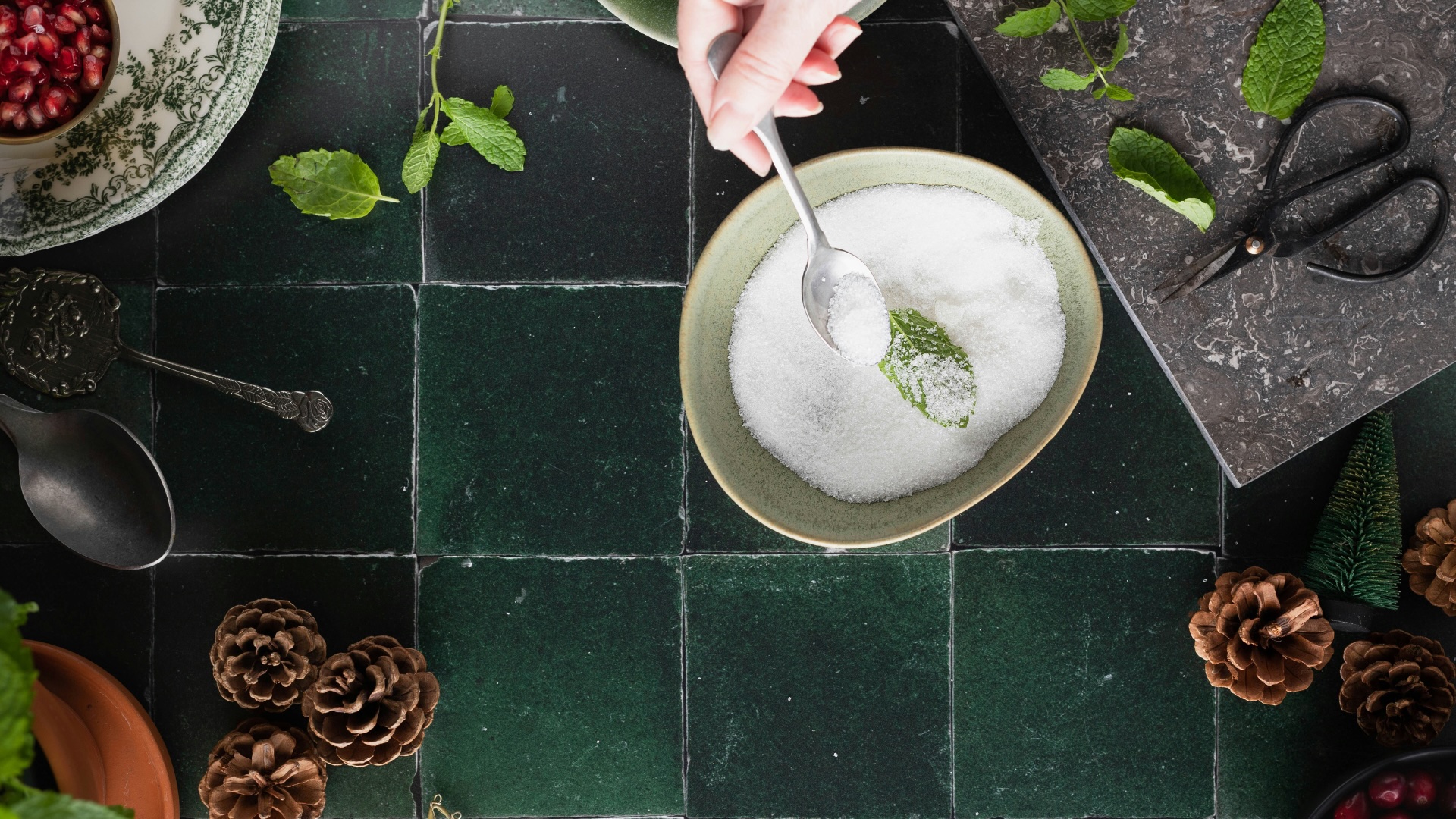Is Sucralose Safe To Have? Let’s Talk About This Artificial Sweetener + Your Health

Sucralose, the artificial sweetener, has been a staple in many low-calorie diets for decades. With its zero-calorie promise and widespread availability, it may be easy to assume sucralose is a harmless alternative to sugar. But is it really? Recent studies and mounting concerns have sparked debate about the potential health risks associated with sucralose consumption.
What Is Sucralose?
Scientifically speaking, sucralose is 1,6-Dichloro-1,6-dideoxy-β-D-fructofuranosyl-4-chloro-4-deoxy-α-D-galactopyranoside.
Chemical Makeup:
Practically speaking, it’s a very sweet sugar alternative. It’s
Worse than sugar in some ways:
“Better” than sugar in other ways:
Not totally certain territory:
While sucralose may seem like a healthier alternative to sugar, its artificial nature and potential health risks warrant caution. While cutting back on excess sugar and calories is important in promoting a healthful diet, sucralose is likely not the best way to get there.
Where It’s Found
You’ll find sucralose everywhere from grocery store shelves to restaurant salad dressings. Be on the lookout:
Food and Drink:
Processed Foods:
Pharmaceuticals and Supplements:
Effects On Gut Health
While a no-calorie sweetener sounds great in theory, the truth is more bitter than sweet.
Unfortunately, sucralose has been shown to seriously disrupt our gut bacteria, leading to an overgrowth of harmful pathogens and a decline in beneficial microorganisms. Research suggests that sucralose can alter the gut microbiome's composition, reducing the presence of beneficial bacteria including Bifidobacterium and Lactobacillus. This disruption can lead to a range of gastrointestinal symptoms, including bloating, abdominal pain, diarrhea, and constipation. This imbalance of gut bacteria has been linked to a host of chronic diseases, including obesity, diabetes, and inflammatory bowel disease.
Sucralose consumption has also been linked to compromised gut integrity, characterized by increased permeability and inflammation--leaky gut! The chlorinated structure of sucralose may damage the gut lining, allowing toxins and undigested food particles to pass through the gut wall and into the bloodstream. This can trigger an immune response, leading to inflammation and oxidative stress. Studies have also shown that sucralose can inhibit the production of glycosidases, essential enzymes for maintaining gut health. The consequences of compromised gut integrity can be far-reaching, contributing to conditions such as leaky gut syndrome, irritable bowel syndrome, and even neurological disorders like anxiety and depression.
Effects On Overall Health
1. Inflammation
Consuming sucralose can lead to chronic inflammation, a silent killer that undermines overall health. Research reveals that sucralose may:
2. Insulin Resistance
Consuming sucralose can contribute to insulin resistance, a precursor to type 2 diabetes and metabolic syndrome. Research suggests that sucralose may:
3. Weight Management
Despite being calorie-free, sucralose can hinder weight management efforts. Research reveals:
4. Increased Risk For Certain Health Conditions
Consuming sucralose has been linked to an increased risk of various health conditions, including:
My Favorite Sugar Substitutes
Sweets are a delicious part of a balanced diet (although should be a pretty small part), but there are some ways to make better choices when it comes to sweeteners.
When Ditching Sugar, Don’t Replace It With Something Worse
While much of the “healthy eating” advice of the last 40 years has advocated for sugar-free alternatives including sucralose, this misleading suggestion is likely causing more harm than good. This type of mixed message is frustrating and has real life impacts on our health.
Looking For Additional Guidance?
To get to the bottom of real nutrition and a plan for overhauling your diet in a sustainable, evidence-backed way, consider scheduling an appointment with one of our functional medicine experts. You don’t have to do it alone!
Start Your Health Journey Today
FUNCTIONAL MEDICINE CONSULTATIONS FOR PEOPLE AROUND THE WORLD
- Zheng, Z., Xiao, Y., Ma, L., Lyu, W., Peng, H., Wang, X., ... & Li, J. (2022). Low dose of sucralose alter gut microbiome in mice. Frontiers in Nutrition, 9, 848392.
- Bian, X., Chi, L., Gao, B., Tu, P., Ru, H., & Lu, K. (2017). Gut microbiome response to sucralose and its potential role in inducing liver inflammation in mice. Frontiers in physiology, 8, 487.
- Hacioglu, C. (2024). Long‐term exposure of sucralose induces neuroinflammation and ferroptosis in human microglia cells via SIRT1/NLRP3/IL‐1β/GPx4 signaling pathways. Food Science & Nutrition.
The information on this website has not been evaluated by the Food & Drug Administration or any other medical body. We do not aim to diagnose, treat, cure or prevent any illness or disease. Information is shared for educational purposes only. You must consult your doctor before acting on any content on this website, especially if you are pregnant, nursing, taking medication, or have a medical condition.
Our content may include products that have been independently chosen and recommended by Dr. Will Cole and our editors. If you purchase something mentioned in this article, we may earn a small commission.

BY DR. WILL COLE
Dr. Will Cole, DNM, IFMCP, DC is a leading functional medicine expert who consults people around the globe, starting one of the first functional medicine telehealth centers in the world. Named one of the top 50 functional and integrative doctors in the nation, Dr. Will Cole provides a functional medicine approach for thyroid issues, autoimmune conditions, hormonal imbalances, digestive disorders, and brain problems. He is also the host of the popular The Art of Being Well podcast and the New York Times bestselling author of Intuitive Fasting, Ketotarian, Gut Feelings, and The Inflammation Spectrum.

Gut Feelings
Healing The Shame-Fueled Relationship
Between What You Eat And How You Feel
